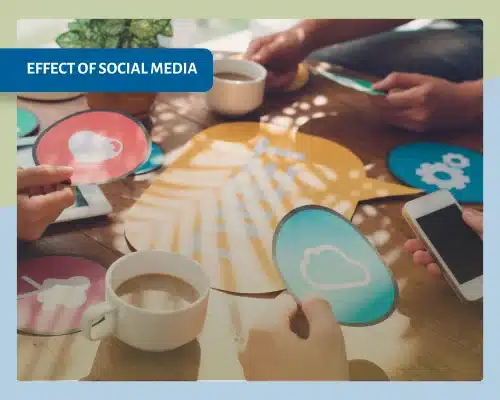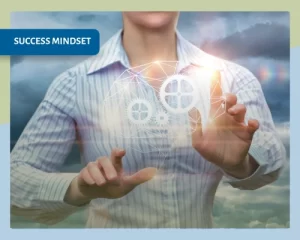There’s a lot to be said about human emotion because, quite frankly, it is very complicated.
Many scientists believe that some of the fundamental differences we as a species have are because we feel certain emotions in specific ways.
The way we understand and experience love, anger, care, disappointment, or hope is crucial in formulating how we act in many situations and can change our futures in the blink of an eye.
This is why genuinely understanding our emotions is so important – by figuring out how different situations make us feel and where the roots of those feelings lie, we can understand how they govern us and potentially what we would like to change.
Social Media And Society’s Opinion
We live in a time where feelings are simultaneously being broadcasted and hidden which may sound like a paradox but is, in fact, very true!
Let’s focus on social media – the center of attention for a big part of modern society.
At its core, this is a virtual space explicitly made so that people can share exactly how they feel in each moment.
Videos, photos, posts, tweets, comments, reactions – all of these are essentially forms of self-expression that allow us to convey our innermost desires, fears, opinions, and hopes.
A digital, eternal library of our human experience where everything is said, shared and stored.
This has its obvious positive sides – freedom of speech for one, is actively supported, which hasn’t always been the case.
Creativity is encouraged and given its due credit, thus broadening all sorts of cultural knowledge and allowing all kinds of talents to be noticed and appreciated despite where they come from and what they are.
Forming an opinion and standing by it has also never been easier, which is tremendously beneficial because it focuses the individual’s attention on their personal choices and the reasons behind them.
These things are all connected with emotions and have all had an impact due to the exponential growth of social media.
The Paradox
Now, this is where the paradox mentioned above comes into play.
For one, by having all of this information just a few clicks away, it’s easy to feel overwhelmed or even discouraged to share your thoughts and ideas – after all, there’s always going to be someone better than you.
Historically speaking, there hasn’t been a time in which the previous statement was not true.
However, today we can find and keep our focus on each person who is superior in our eyes.
Sure the people who lived before the golden age of the internet also understood that they probably weren’t the absolute best in their respective fields, but it’s a different thing to realize this in theory and actually to see those people and their achievements every day.
This often takes a toll on our self-esteem and makes us disregard our feelings and thoughts.
The Aspects Of Social Media
With the above-said in mind, we would like to make another important mention here – just because you see it, doesn’t mean it’s the whole story!
Social media posts tend to be highly positive – unrealistically so.
It’s natural for the creator only to want to share their finished product or their final thoughts, without mentioning all the hardship that came before that.
However, the viewer often forgets that this hardship was the central part of the narrative.
By seeing everyone else’s lives through rose-colored glasses (or filters), we often end up judging ourselves because our worlds have different nuances and colors.
This can bring us to the conclusion that we shouldn’t take our own emotions or even ourselves as a whole into account, which is precisely why social media is a double-edged sword.
In a sense, social media is a highlight of people’s lives – Not the entire story.
Listening To Your Own Feelings
So how do we battle this? Social media is far from the only perpetrator of lowering self-esteem, but it is also a great example of one because most of us use it daily.
Regardless of if you’re talking about a bully you had in your class or some stranger’s opinion on the internet, you probably can’t do much to change the negativity that is being thrown your way, and you shouldn’t have to.
Negativity will always be a part of our lives the same way positivity will always fight it back.
Instead of changing the outside factors (a task which can not only be exhausting but is sometimes plain impossible), what you can do is focus on what’s under your control – your own perception.
By listening and understanding your emotions, you become the master of how those negative people or things affect you.
An excellent first step is to ask yourself questions – as much as you can and as often as possible.
Get to know yourself more, understand why you like what you like, how different things make you feel when you are happy, what makes you sad, what you want to hear when you’re in a bad place, your hopes, and dreams, etc.
For instance, the questions you can ask someone you want to be friends with are almost identical to the ones you can ask yourself and you should focus on your answers just as much as you would if it were a different person giving them.
What this process of asking and answering your questions does, is it switches your focus from the outside world to your inner reality.
With this shift, you start understanding why your feelings and thoughts have just as much value as everyone else’s and why your opinion is just as important.
After that, it’s much easier for you to share the emotions and ideas you have with the world.
You see, when you truly understand something – its origins, its current form, and its future effects, you are more confident when you are facing it as well as when you have to explain it to someone else.
The same way you find explaining simple things to kids easier than untangling complicated theories when you have all the answers using straightforward language, it’s much more comprehensible both for you and for your audience.
In addition, this newfound conviction that comes with knowledge allows you to be more open and truthful and therefore attract the proper response.
From that point on, everything is pretty much smooth sailing.
Take-Home Message
This first step to learning to take your own feelings into account is hard and takes some getting used to.
Nevertheless, it is vital in bettering our opinion of ourselves and the importance we give it.
By learning to take your emotions into account, you will undoubtedly find out new things about yourself, how to pay attention to them, and why you couldn’t see them before.
This form of self-realization and the change that comes with it is something that everyone should experience because it brings you closer to the person you ultimately want to be – a person who truly understands themselves and is happier for it.











